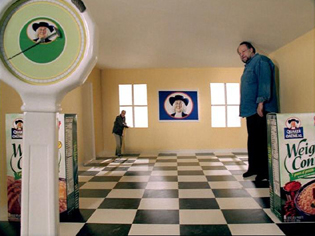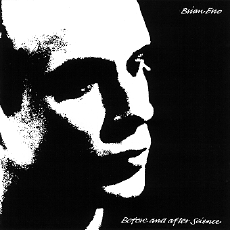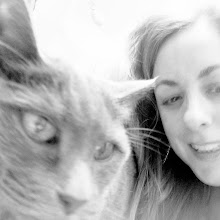By the time LA's House of Pain entered the hip-hop fray in the 1990s, the idea of a white hip-hop group wasn't as much of an oxymoron as it would've been a decade before. Since then, the Beastie Boys and Third Bass, on the East Coast, had paved the way for this pasty crew of miscreants. On the West Coast, the multi-racial Cypress Hill had followed suit. And no, I'm not about to mention Vanilla Ice... (Whoops!) In any case, despite some surface similarities, none of these outfits were flying the orange and the green.
Enter Erik Schrody, better known as Everlast, who was born on Long Island in 1969. He would eventually end up in LA, where he attended Ice-Cube's alma mater, Taft High School. As influences, he has claimed the likes of Bill Withers, Tom Waits, and Run-DMC. His first official rap move came in 1986 when he joined Ice-T's crew at the age of 17. Four years later, he released his first full-length, Forever Everlasting, on Ice-T's Rhyme Syndicate imprint. It was even produced by the man himself. Few noticed. Shortly afterwards, Everlast formed the hiphop trio House of Pain with fellow Rhyme Syndicate member Daniel O'Connor, AKA Danny Boy, and a gentleman of Latvian extraction, Lior DiMant, AKA DJ Lethal. According to Everlast's website, "[Lethal] was expelled from Jersey City grade-school Yeshiva for flinging yarmulkes like Frisbees down the hallway." (In other words, like the Beasties and Third Bass before them, House of Pain were also part-Jewish.) Signed to Tommy Boy and featuring production assistance from Cypress Hill's Muggs, another Caucasian character, House of Pain released their self-titled debut in 1992. It quickly went platinum. Emblazened with the Guinness-inspired slogan, "Fine malt lyrics," it featured such Irish-centric song titles as "Shamrocks and Shenanigans" and "Top o' the Mornin' to Ya." But the album's biggest hit had little to do with its Irishness. Rather, it was simply the perfect song at the perfect time. Imagine a cross between Naughty by Nature's "O.P.P." and Kriss Kross's "Jump" and there you have it: "Jump Around." The song was even released--on green vinyl, naturally--as a Sub Pop single, featuring Butch Vig's grunge-a-rific "Shamrocks" remix on the flipside.
But let's return to the album's more overtly Irish tracks. It's on these selections where Everlast's lyrical skills come to the fore. So is he saying anything particularly profound about the Irish experience? Not really, but his wordplay is clever and funny, and hip-hop could always use a little humor. In "Top o' the Mornin' to Ya," for instance, he claims, "I may be Irish / But I'm not a leprechaun." I take this to mean, "I may be Irish, but I'm not a fuckin' cartoon." The song also features lines like, "These Irish eyes are smilin' / I'm buck wilin'," while "Danny Boy, Danny Boy" includes the couplet, "I'm clockin' my glock / And I've got my shillelagh." Later in "House and the Rising Sun," Everlast spells out his musical M.O. when he raps, "'Cause I'm a white Irish man with a funk soul." I take this to mean, "Don't let appearances fool you." (Fittingly, the name of the official House of Pain fan club was called Hoods and Hooligans.) As for the samples on their debut, House of Pain, like many of their contemporaries, may have had a whole lotta love for the funk, but it's hard to imagine these cats weren't also brought up on more Leadbelly than jam--just like Van the Man--as the album features an abundance of blues samples from "heads" like Willie Dixon, Albert King, and especially that Morrison favorite, John Lee Hooker.
During their three-album reign as the world's premiere Gaelic hip-hop group, House of Pain were criticized for any number of things. On the one hand, they were too Irish, i.e their Irishness was perceived as a mere gimmick or, as Ira Robbins puts it in his Trouser Press entry on the band, they engaged in "ethnic profiteering." Well, I won't deny that there's some truth to the claim, but at least they weren't extolling the virtues of such faux Irishness as, say, Lucky Charms, Irish Spring, or such masterpieces of Irish cinema as Darby O'Gill and the Little People, the Leprechaun horror series, or Finian's Rainbow, the catastrophic musical that almost destroyed Francis Ford Coppola's career before he'd even gotten started. On the other hand, House of Pain were also criticized for not being Irish enough, which is to say, they weren't political. But is this really a fair argument? I'm not so sure that it is. While Everlast may have a Sinn Fein tattoo on his chest, which makes it clear that he was at least as pro-IRA as his sartorial soul sister Sinead O'Connor (i.e. "I don't have dreads / I shave my head daily / You call me a skinhead / I call you a pinhead"), why can't a band of Irish "brothers" be a party band as much as a group of any other ethnicity? Because ultimately, that's what they were. Just like their pals in Cypress Hill, they were more about smokin' blunts and sippin' fortys than anything else.
I was never embarrassed by the way House of Pain wove Irishness into their sound. In fact, I thought it was pretty cool. Rather, it was their machismo, a different sort of Irish stereotype, that could be the real turn-off. There were those occasional lyrics, for instance, like "If your bitch steps up / I'm slappin' the ho" ("Jump Around") and "Excuse me señora / Are you a whore-a / Or are you a lady?" ("Shamrocks and Shenanigans"). There were also lyrics about gats, glocks, and the size of their equipment. And for better or for worse, House of Pain weren't, to quote the Cheap Trick, "all talk." They were real-life brawlers and got involved in plenty of scraps throughout their career of both the physical and verbal variety. There was also a weapons possession charge for Everlast in 1993 and a war of words with Eminem in the late-1990s.
In 1994, the group released Same As It ever Was, which went gold, but produced no hit singles, although I would argue that the sublime head-nodder "On Point" deserved better than it got and many fans claim it's their best record. Now it should be noted that there are many things for which the Irish are famous, such as Guinness, Jameson's, and Galway Bay oysters. They are not, however, known for their pizza, but that didn't stop House of Pain and their brawlin' Celtic buddy Mickey Rourke from trying to open up an LA joint called House of Pizza that same year. Alas, the venture was a non-starter as all had criminal records and their request for a liquor license was denied. (And Tupac thought he was a thug!) House of Pain's final full-length was 1996's Truth Crushed to Earth Shall Rise Again, which made little impact and the band soon called it quits.
That should have been the end of that, but Everlast--much like his name--would proceed to defy the truism of that great Irish-American scribe F. Scott Fitzgerald when his American life entered its second chapter. First he got started on a solo album, a process which was interrupted when he suffered a heart attack due to a previously undiagnosed defect. He was 29. Fortunately, he made a full recovery. Then in 1997, he took a step few Irish Catholics before him have made, when he converted to Islam (which makes it less surprising that Sinead O'Connor would follow his lead in converting to Rastafarianism a few years later). Everlast claims it was the rapper Divine Styler who turned him on to the religion and assured him that skin color was not a barrier for entry. The long-player he had been working on at the time, Whitey Ford Sing the Blues, was released in 1998 and went triple-platinum on the strength of the single, "What It's Like."
Everlast's other post-House of Pain recordings, which add folk, blues, and country tinges to his basic formula, include Eat At Whitey's (2000) and White Trash Beautiful (2004). I guess, or at least I hope, that Everlast has also read How the Irish Became White as he seems to have an obsession with the word "white." Maybe it comes from years of being described as a "white rapper" instead of, say, an "Irish-American rapper" or even just "a rapper." And the hits didn't end there for Everlast also appears on the mega-platinum Supernatural, for which he and Carlos Santana shared a Grammy Award ("Best Rock Performance by Duo/Group with Vocal") for the song "Put Your Lights On."
The bottom line? House of Pain didn't start a movement when they decided to Irish up hip-hop but, much like the Beastie Boys, they helped to provide a much-needed link between rock and rap and also proved that hip-hop, as a form, was a lot more elastic than anyone could have ever imagined. Consequently, they deserve much better than the "one-hit wonder" tag that has become their legacy. And while I'm at it, they even came up with a response to Vanilla Ice's oft-quoted, much-mocked, "Word to your mother!" It goes, "Yeah, I'm Irish / Word to the Motherland!"
Images from Amazon and Lepconnie.com.
I was never embarrassed by the way House of Pain wove Irishness into their sound. In fact, I thought it was pretty cool. Rather, it was their machismo, a different sort of Irish stereotype, that could be the real turn-off. There were those occasional lyrics, for instance, like "If your bitch steps up / I'm slappin' the ho" ("Jump Around") and "Excuse me señora / Are you a whore-a / Or are you a lady?" ("Shamrocks and Shenanigans"). There were also lyrics about gats, glocks, and the size of their equipment. And for better or for worse, House of Pain weren't, to quote the Cheap Trick, "all talk." They were real-life brawlers and got involved in plenty of scraps throughout their career of both the physical and verbal variety. There was also a weapons possession charge for Everlast in 1993 and a war of words with Eminem in the late-1990s.
In 1994, the group released Same As It ever Was, which went gold, but produced no hit singles, although I would argue that the sublime head-nodder "On Point" deserved better than it got and many fans claim it's their best record. Now it should be noted that there are many things for which the Irish are famous, such as Guinness, Jameson's, and Galway Bay oysters. They are not, however, known for their pizza, but that didn't stop House of Pain and their brawlin' Celtic buddy Mickey Rourke from trying to open up an LA joint called House of Pizza that same year. Alas, the venture was a non-starter as all had criminal records and their request for a liquor license was denied. (And Tupac thought he was a thug!) House of Pain's final full-length was 1996's Truth Crushed to Earth Shall Rise Again, which made little impact and the band soon called it quits.
That should have been the end of that, but Everlast--much like his name--would proceed to defy the truism of that great Irish-American scribe F. Scott Fitzgerald when his American life entered its second chapter. First he got started on a solo album, a process which was interrupted when he suffered a heart attack due to a previously undiagnosed defect. He was 29. Fortunately, he made a full recovery. Then in 1997, he took a step few Irish Catholics before him have made, when he converted to Islam (which makes it less surprising that Sinead O'Connor would follow his lead in converting to Rastafarianism a few years later). Everlast claims it was the rapper Divine Styler who turned him on to the religion and assured him that skin color was not a barrier for entry. The long-player he had been working on at the time, Whitey Ford Sing the Blues, was released in 1998 and went triple-platinum on the strength of the single, "What It's Like."
Everlast's other post-House of Pain recordings, which add folk, blues, and country tinges to his basic formula, include Eat At Whitey's (2000) and White Trash Beautiful (2004). I guess, or at least I hope, that Everlast has also read How the Irish Became White as he seems to have an obsession with the word "white." Maybe it comes from years of being described as a "white rapper" instead of, say, an "Irish-American rapper" or even just "a rapper." And the hits didn't end there for Everlast also appears on the mega-platinum Supernatural, for which he and Carlos Santana shared a Grammy Award ("Best Rock Performance by Duo/Group with Vocal") for the song "Put Your Lights On."
The bottom line? House of Pain didn't start a movement when they decided to Irish up hip-hop but, much like the Beastie Boys, they helped to provide a much-needed link between rock and rap and also proved that hip-hop, as a form, was a lot more elastic than anyone could have ever imagined. Consequently, they deserve much better than the "one-hit wonder" tag that has become their legacy. And while I'm at it, they even came up with a response to Vanilla Ice's oft-quoted, much-mocked, "Word to your mother!" It goes, "Yeah, I'm Irish / Word to the Motherland!"
Images from Amazon and Lepconnie.com.














